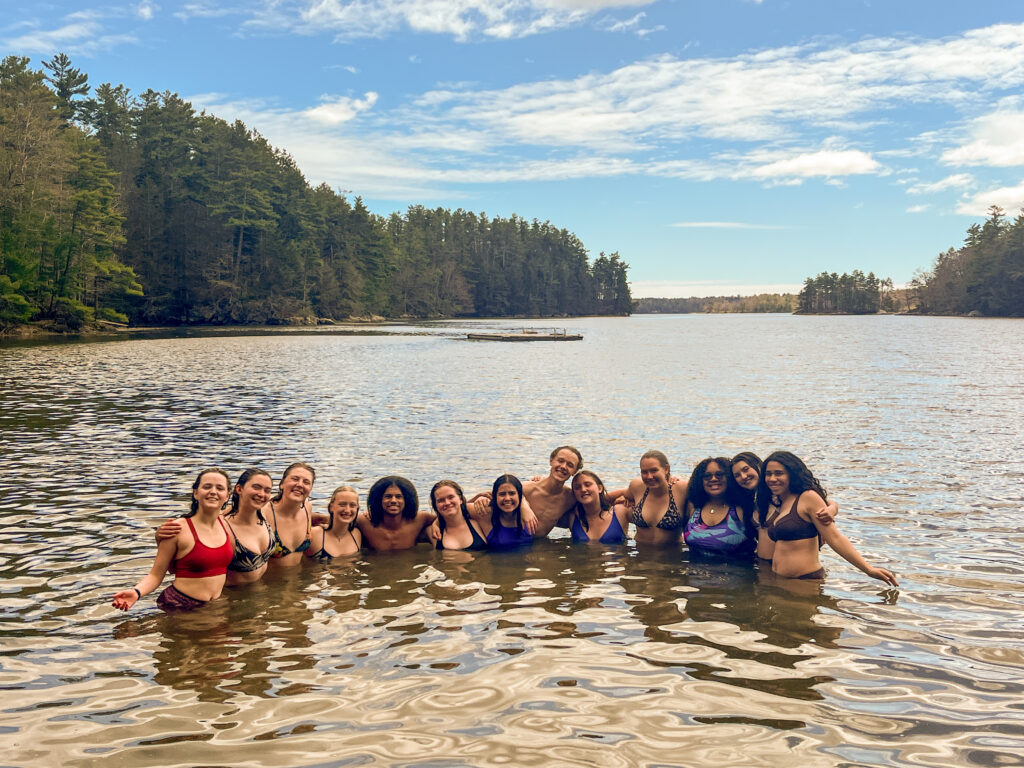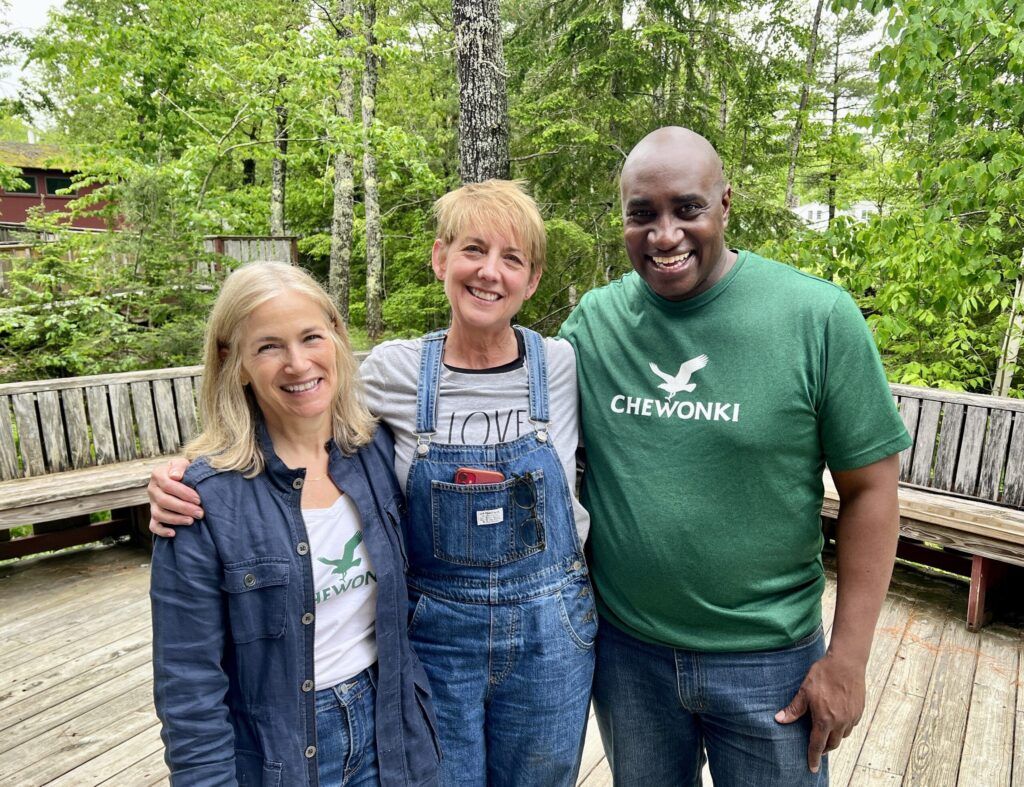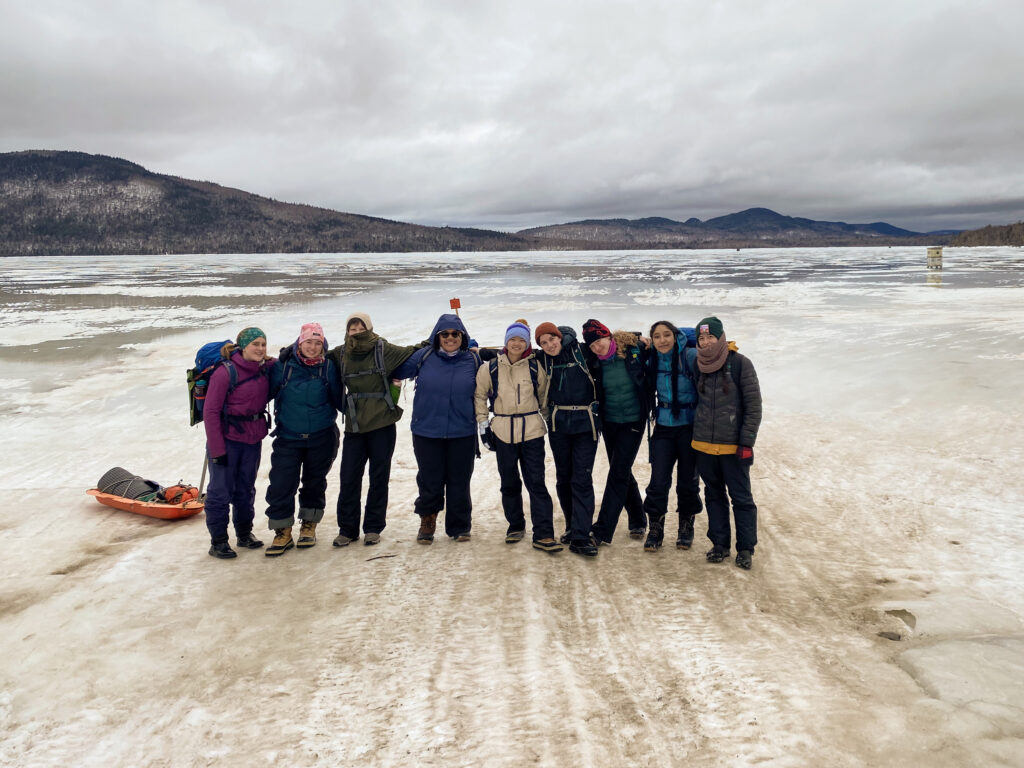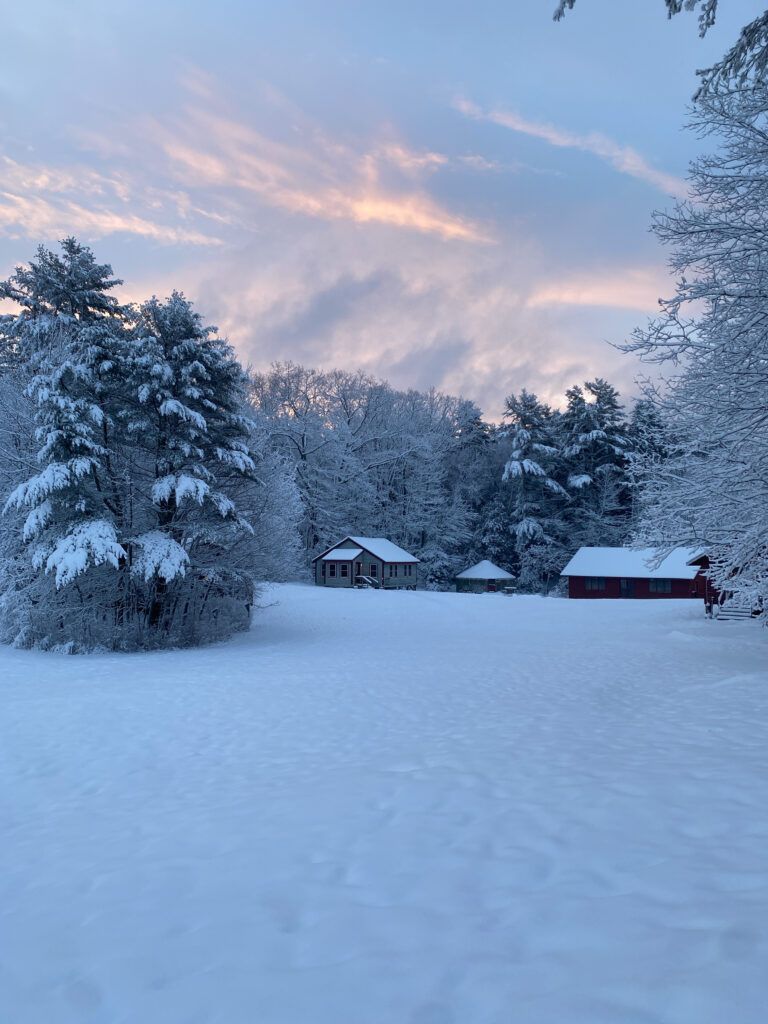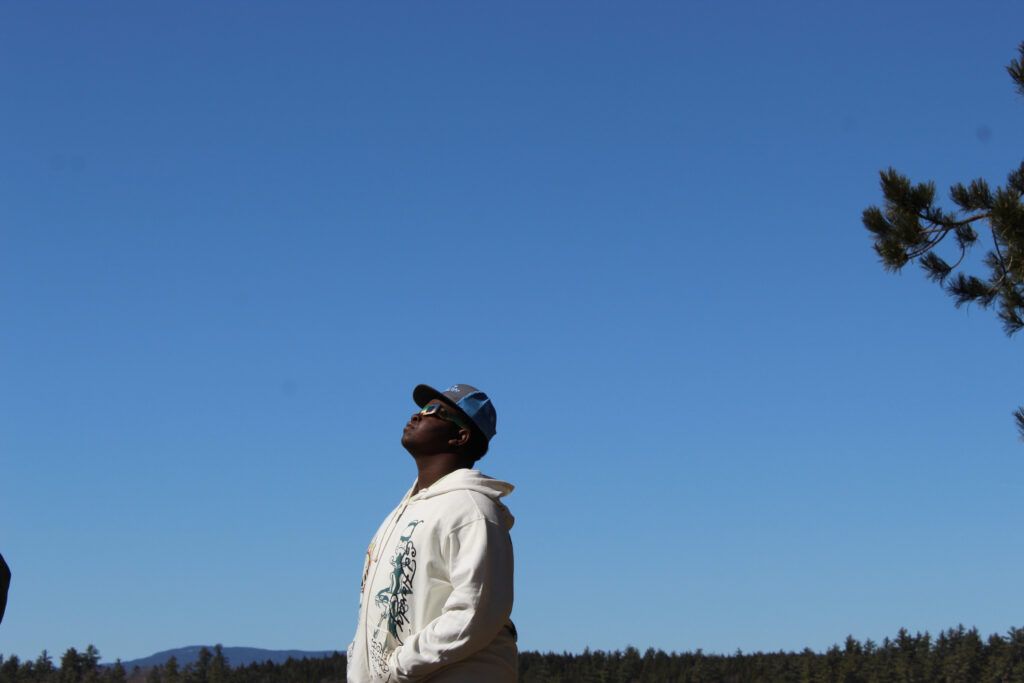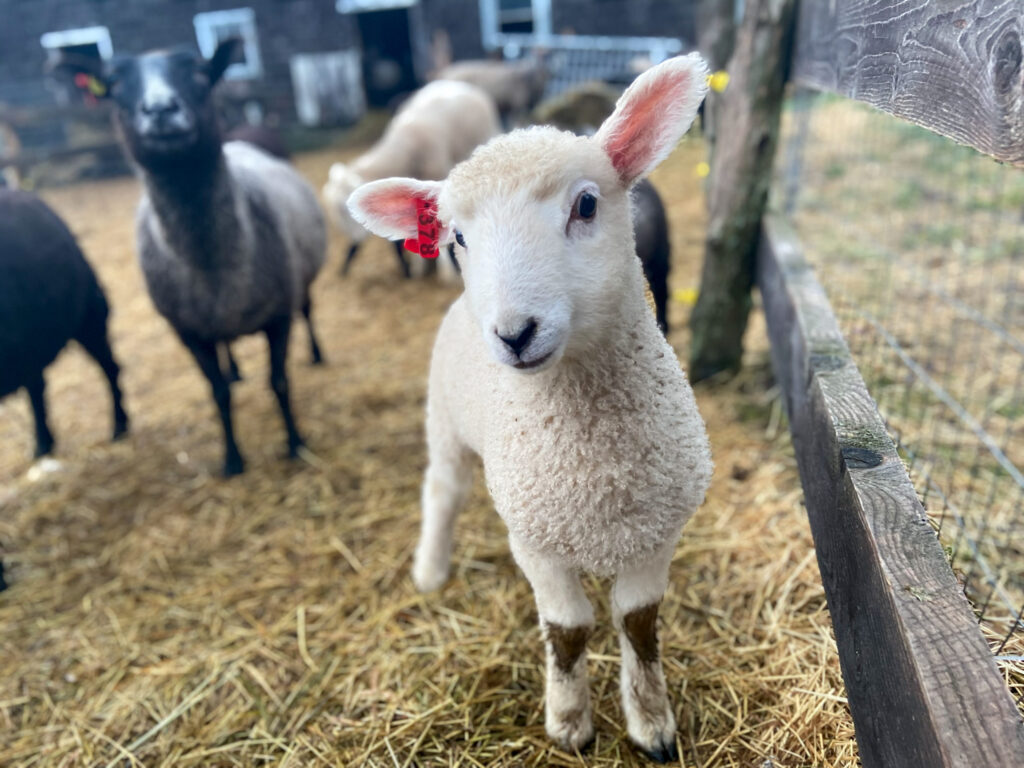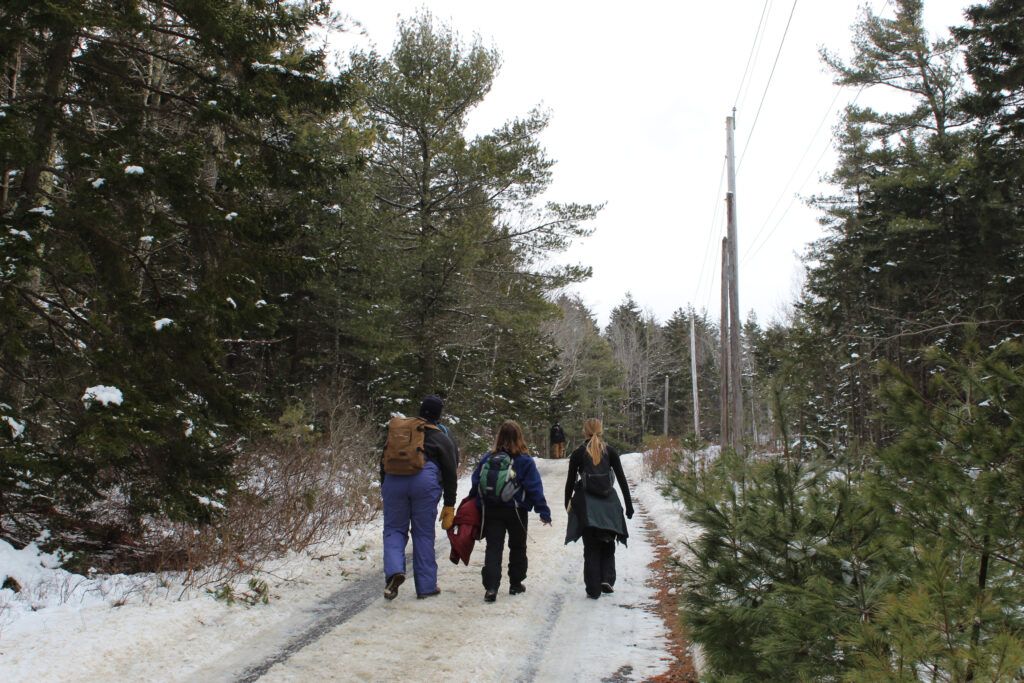Sopping wet, muddy socks, shivering, and shrieking– that’s how our class ran across the lawns, hightailing it to the showers.
We had just gotten back from our Salt Marsh field lab, located on the North-Western edge of the Neck, about ten walking minutes from the main campus. When our science teachers told us to wear clothes we didn’t particularly mind getting dirty, my friends and I anticipated that we could stay mostly clean. “How hard can it be?” we thought, underestimating the pull of the salt marsh on our boots and the allure of simple mud play.
We don hip-waders and gather field journals, fill water bottles and make last-minute runs back to cabins, then start our walk. Down the Lower Fields, into the woods and through flurries of fall leaves, glimpses of the water glitter between tree trunks. Moss covers rocks, fading slightly with the onset of cold weather, and a few birds call to each other in the canopy. I start to smell rotten eggs— sulfur! The salt marsh is near! The trees abruptly disappear, revealing a gently-sloping expanse of dried grasses that I would soon put names to – Smooth Cordgrass ( a vascularized grass whose roots capture mud, expanding the marsh,) Marsh Hay ( cows who eat Marsh Hay produce a specially-flavored butter that’s sold in France,) and Black Rush ( a brittle, darkly-colored grass with distinctive seed clumps.) Streams only defined in low tide cut through the landslide. We sit along the marsh’s edge and form a cover page in our field journal, complete with our location, weather, and the day’s tides. I include doodled grass stalks. After this, we stand and walk through the grasses, naming them and their evolutionary adaptations, then drawing a diagram of their growth in relation to the reach of the tides. Next is a lesson on how to walk in the salt pans without sinking. Salt pans are stagnant pools of water that trap salt from the tides, concentrating it into a thick, finely-grained sludge with a thin layer of water on top, housing Mummichog fish who dart around clumps of dead seaweed.
The fun part came next. Unstrapping watches, shedding bracelets, tying hair back, and setting field journals aside, we set out into the marsh. The grass is waist-height, and I run my fingers through it as I walk, watching where the person in front me sinks into soft mud, or a hidden sinkhole, concealed by trampled grasses. I feel fairly confident in my ability to stay clean until we get to a wide salt pan where I self-assuredly clomp into the mud, quickly sinking into the soft sediment. I make it a few steps further before sinking absurdly deep into the mud, my boots suctioned into the sloopy goop. I try to wriggle my ankles to break the suction, but I just can’t. My ankles pop and I can tilt at impossible angles thanks to the firm grip of the mud, now up to my knees. My peers are barely fairing better, and I look over to see my cabin-mate fallen across the mud, her clothes now slick with mud, bangs coated, cheeks and nose smeared in smooth gray-ish brown. A laugh paints her features, and her eyes twinkle as she puts her arms up for help.
Meanwhile, I am still stuck in the mud, and shifting my weight from foot to foot only pushes me farther in. I call to my science teacher, Tara, “please come rescue me!” I try and try to wriggle out, using her for balance. I pull and tug at my boots– a pathetic attempt at freeing my feet, the slippery mud coating my boots and now my hands and now my wrists and then my sleeves; an ever-spreading goop. My hair slips free of its ponytail, getting in my mouth and eyes, and I instinctively reach up a hand to brush it away. Now there is mud on my face, viscous and cool, a dot on my lips. It tastes horrid. Still stuck, and now doubled-over in laughter over one of the most bizarre situations I have ever experienced, I pull my leg out of the boot. Unsure of what to do with it once it’s out, (I don’t want to put my foot down into the mud) I ask a peculiar question to my science teacher, who I have known for less than two months. “Tara, would you please hold my leg?” She obliges, and now I can’t even focus on the task at hand because of how purely comical this whole situation has become. Once I have recovered myself a bit, I return to the previous task of pulling the boot out of the mud, but minus the leg. This proves just as pointless as the first try, so I release poor Tara from her occupation, and insert my leg back into the long boot. Eventually, one science teacher later, Chloe and I free my leg and slowly resume the trek through the salt pan.
I successfully make it to a higher swath of grass, safe from the mud at this low tide-time, out of breath. Joining several other people, I notice that I am by far the muddiest of the bunch, so I do the next logical thing and open my arms for free hugs. I receive none, and am unable to transfer my mud to anyone else.
We walked, sludged, ran, and leapt our way through the salt marsh until it was time to tromp back to campus and hose off. The fine particles found in the mud can clog pipes and ruin plumbing systems, so it was crucial that we scrubbed all of the mud off of our clothing and skin before taking showers and washing clothes. As we walked back, we kicked up swirls of drying leaves, their curled forms clinging to our muddy boots. We shiver in the late afternoon breeze, the mud stiffening and drying against us. We soon realize that the sun had been making an even bigger difference for our warmth than we had formerly thought when, soon after the first shoots of hose water hit us, the sun descends below the bare trees, leaving us shivering- soggily- in shadow. I try to abandon any romanticized ideas I may have possessed about the post-salt marsh cleaning process and just turn myself over to the unavoidable reality of the situation, but I can’t quite get over the unique sensation of scrubbing my clothes while they are still on my body while being pelted with glacial water as the sun sets on an early November evening. The only sensory experience that trumps that in absurdity is when I run back to my cabin in muddied, once-fluffy socks; tiny rocks and sand working their way between my toes.
I have never appreciated a hot shower as much as I did that evening, nor the conversation that filled the bathroom, drifting over stalls and through steamy air. We had shared an experience that wasn’t soon going to leave our memories.
Willow Sprague-Robinson, Aldo Leopold Charter School, Pinos Altos, NM

